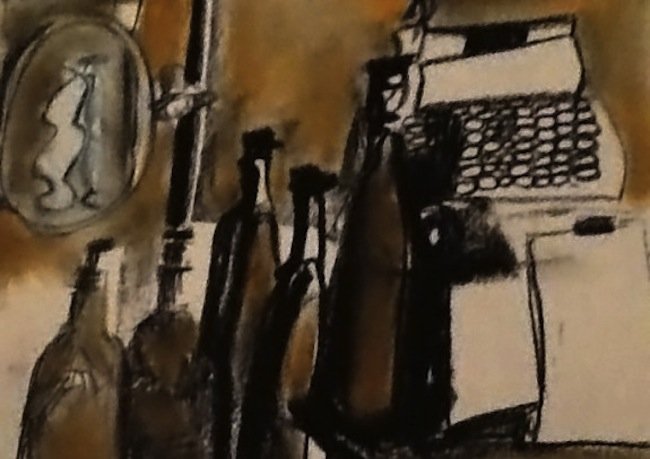Once after one of my MFA professors had said the work we were reading was neither good nor original, the student who’d produced the pages wailed, But … but this actually happened!
So what? He said.
*
I think François Truffaut said everyone in fiction is crazy, and the problem is to render this craziness interesting. This is too romanticized to cover most cases, especially in early semester MFA programs.
The bigger problem is everyone in fiction is normal, and the problem is to render that interesting.
*
Because how hard is it to render craziness interesting?
Well, OK, it turns out it’s a little hard. One way to say it is, craziness is now so common that few people notice it. I was talking with M the other day about memes and the news and viral videos and how no one is much surprised if some one of those items turns out to be complete hash.
So what? They said.
We expect it, and don’t really care one way or the other, ‘cuz all we want is a little diversion from whatever we’re pretending to do.
That might be the real disconnection of technology: we’re not really doing it at all.
*
I think how this affects writers is we don’t want to be that guy.
We have a thinking problem, and we don’t want to disconnect, and we want to stop pretending and we don’t want to stop doing what we’re made to do, and of course it’s not confined to writers, though it often has the appearance of being confined to certain categories of people — artists in general, philosophers, and so on.
Humanities now seems a quaint word, one that we’re constantly assured is on its way out any dang day now, forgetting the word humanities seems likely related to human and the day we don’t need that anymore is when we lock up the joint and melt the key down into our last dime so we can phone God and tell him we quit.
*
The truth is, we’re all normal.
Gloriously.
Sadly.
*
I started thinking about this from this article, a review of a book on writers and drinking.
It’s a good article and sounds like a good book and it’s a very old story — the one about the writer who drinks. They’re not writers with a drinking problem, it’s said; they’re drinkers with a writing problem.
Like the craziness idea, the writer-drinker is also romanticized. Few realize the alcoholism is not a cosmic necessity of artists: rather, it hinders them, just as alcoholism does any activity, except drinking.
Just as any addiction does, though we see few articles on artists addicted to food. To be fair there are accounts of drug addiction, and we even find an occasional item on writers who were so angry or poets so depressed they often couldn’t save their lives let alone their marriages and other relationships.
*
And plenty of creation has been stifled by addictions to entertainment — television, the massive CD and DVD collections we amassed, televised sports, cooking channels that keep you out of the kitchen, nature channels that substitute even for going to the park …
*
There is some disagreement about whether Faulkner drank while writing.
This suggests he did it at least sometimes; this asserts he did it rarely.
Those aren’t exactly opposites of course.
*
I remember reading he ruthlessly separated the two. He liked whiskey and he had to write, and far from causal, they did not overlap.
*
If everyone is flawed and most will say we are …
And if thinking inheres in being human …
Then we’re all going to be Houston.
We’re going to have a problem.
*
We want things awesome — we want to think, imagine, conceive, create, make, build, grow.
And when we don’t, and eventually can’t, we dull the pain of not doing this with … anything.
*
It’s hard to be this kid.
But it’s harder not to.
*
Yet we continue to confine this creating problem to writers — and then go a step farther and excuse it in them because, after all, They do this … ooh, l’amour … romantic thing and, you know, the alcohol is part of that life; Whattya gonna do?
*
But this is exactly backwards.
Writing is how he works out his daemon well, and drinking is how he does not.
*
It can be thus for all, because we’re all like that.
When we do what we were made to do, it is well.
When we do not, when we flee, when we drink, it isn’t.

